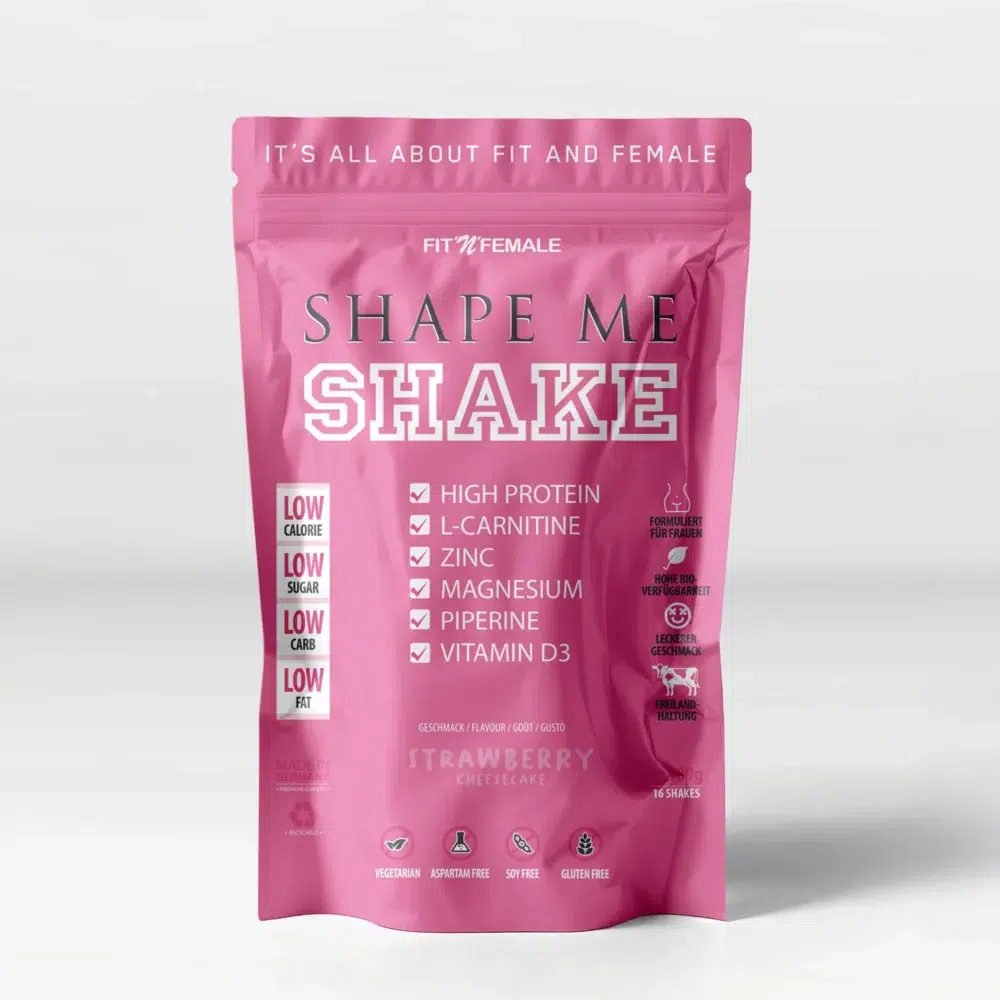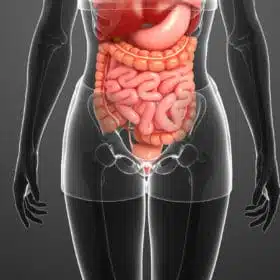With all the diets vying for the favor of those willing to lose weight with more or less sensible approaches, it is easy to lose track. After all, most diets and weight loss tricks work more poorly than right or don't work at all. With this in mind, we would like to give you three tips below that work in any case and can be implemented quickly. And they certainly don't include any obscure detox programs or starvation diets.
Tip 1 - Eat fewer carbohydrates
Yes, reducing the amount of carbohydrates in your diet is an absolute classic among weight loss tips. However, it is only really effective if it is implemented correctly and permanently. And, of course, this form of nutrition must also suit the individual lifestyle. Ambitious endurance athletes such as racing cyclists, who cover several hundred kilometers a week and climb several thousand meters in altitude, are an exception to this rule, for whom cutting out carbohydrates to a large extent is hardly a permanent option. For everyone else, however, reducing the amount of carbohydrates is the top tip.
But what exactly is it about?
There are basically three categories of carbohydrates, which are distinguished by their molecular complexity. Accordingly, we know these carbohydrate groups as simple sugars (monosaccharides), disaccharides and polysaccharides. While we mainly consume simple sugars in the form of dextrose (grape sugar) and fruit sugar (fructose), we consume disaccharides, for example, via products containing classic granulated sugar, malt sugar or lactose. In contrast, from a biochemical point of view, polysaccharides are starch.
This includes foods such as oatmeal, potatoes and wholemeal bread. The big difference lies in how they are absorbed and metabolized in the body. While monosaccharides and disaccharides are absorbed very quickly into the bloodstream, the body needs much longer to metabolize polysaccharides, known as complex carbohydrates. This has several effects. First and foremost, it leads to an increase in insulin levels. This rises particularly quickly with the intake of monosaccharides and disaccharides, as a lot of sugar enters the bloodstream in a short time.
The task of insulin is to act as a "key hormone", so to speak, to ensure that these carbohydrates enter the cells, where they are converted directly into energy or used to replenish muscle glycogen stores. However, it becomes problematic if the glycogen stores are already well filled and yet a lot of sugar quickly enters the bloodstream. In this case, insulin helps the body to store these calories in the form of fat.
In addition, the enormous rise in insulin levels ensures that the sugar is processed comparatively quickly and can lead to a sharp drop in blood sugar levels. The body reacts to this with a phenomenon that we fear like the devil, especially when dieting: hunger! So if you consume too many monosaccharides and disaccharides, this is not particularly good for your beach figure for two reasons.
You are much better off with complex carbohydrates which enter the bloodstream more slowly and therefore trigger a much gentler insulin response. Due to the moderate insulin concentration in the blood, complex carbohydrates also keep you full for longer and provide you with a constant supply of energy. So there's a reason why marathon runners and cyclists eat oatmeal for breakfast instead of Nutella sandwiches to give them a good foundation for the day.
What does carbohydrate reduction mean in practice?
There are several approaches to a low-carb diet. Probably the most extreme variant is the so-called ketogenic diet, in which carbohydrate intake is reduced to an absolute minimum of less than 50 grams per day. However, this form is very difficult to maintain in the long term, as protein and fat consumption are massively increased in return. Many participants in such diets report, for example, a lack of energy and a certain mental fatigue.
No wonder, because the human body is actually optimized for the pre-metabolism of carbohydrates. However, this is also why carbohydrate reduction is so effective for fat loss. If the body lacks carbohydrates in combination with an energy deficit, it has no choice but to tap into body fat as an energy source. But how do you find a good compromise? After all, losing weight won't work without staying power.
The solution is a moderate form of low carb, in which the carbohydrate stores are never completely filled. As a rule of thumb, you can use 2.5 grams of carbohydrates per kilogram of body weight per day, up to a maximum of 200 grams. Fill up the rest with high-quality proteins and fats. It is also important that the carbohydrates you consume are complex carbohydrates that do not cause insulin spikes and keep you full for a long time.
Tip 2 - Focus on protein, fat and lots of vegetables
High protein consumption has several advantages, especially when dieting. On the one hand, you naturally protect your muscles, as the body does not have to start metabolizing your muscles when it is in need. By preserving your muscles, you will look more athletic and not just skinny. Another advantage is the so-called thermic effect of food.
This means that your body needs energy to metabolize protein. And this energy requirement is significantly higher than when metabolizing carbohydrates and fats. So with every gram of protein you eat, you burn additional calories. High-quality sources of animal protein include beef, turkey, eggs, fish and dairy products. On the plant-based side, nuts, kidney beans, pumpkin seeds, lentils and quinoa are particularly high-quality sources of protein.
Tip: our new All-in-One Shape Shake with valuable ingredients to stimulate the metabolism:
Ignite the fat-burning turbo with fat
The motto "fat makes you fat" used to apply. However, this is an outdated view, as fat is a nutrient without which our body cannot function. So if you eat too little fat during a diet, you have a problem. This is because the body then adopts a blockade mode, so to speak, and tries to retain as much body fat as possible. Overall, your fat consumption should therefore never be less than 0.8 to 1 gram per kilogram of body weight per day. A large proportion of your fat consumption should also consist of unsaturated fatty acids.
Not only do they keep you feeling full for longer, they also reduce the risk of cardiovascular disease. They also have a cholesterol-lowering effect and a positive influence on fat metabolism. Good sources of unsaturated omega 3 fatty acids include linseed oil, walnuts and fatty sea fish such as salmon and mackerel. However, foods from the fast food category remain just as taboo as fatty sweets or the emblematic pork knuckle.
Eat your fill of vegetables
Your biggest enemy when losing weight is constant hunger. If you want to eat your fill during your diet, then vegetables are the solution. This is especially true for vegetables with a high water content and low energy density. These fill your stomach and in return have hardly any calories, so you can dig in to your heart's content. They also have a high fiber content, which also has a positive effect on satiety.
And of course, vegetables also contain lots of valuable vitamins, which is never wrong for the body to function optimally. Very nutritious vegetables, which are also ideal as a filling side dish with meat and fish, include broccoli, lamb's lettuce, cauliflower, eggplants, zucchinis, tomatoes, peppers and asparagus.
Tip 3 - Strength training melts away the pounds
A large proportion of the energy that our body uses every day is used by our muscles to produce heat, among other things. So if you have as much muscle mass as possible, you burn more energy as part of a diet without having to work out. The primary goal should therefore be to maintain as much muscle mass as possible. The best way to do this is, of course, with regular strength training. However, three to four sessions in a repetition range of 8-12 should be enough to provide a sufficient maintenance stimulus. Regular strength training also has other advantages during the diet, as even short strength units burn 150-200 kilocalories. With three to four sessions per week, these extra calories are of course also a nice help when losing weight.
You can find more tips and much more in our BIKINI EXPRESS BUNDLE. In addition to selected products for losing weight, you will receive an individual nutrition plan and a training plan that can be easily integrated into everyday life. Now just 20% reduced!







